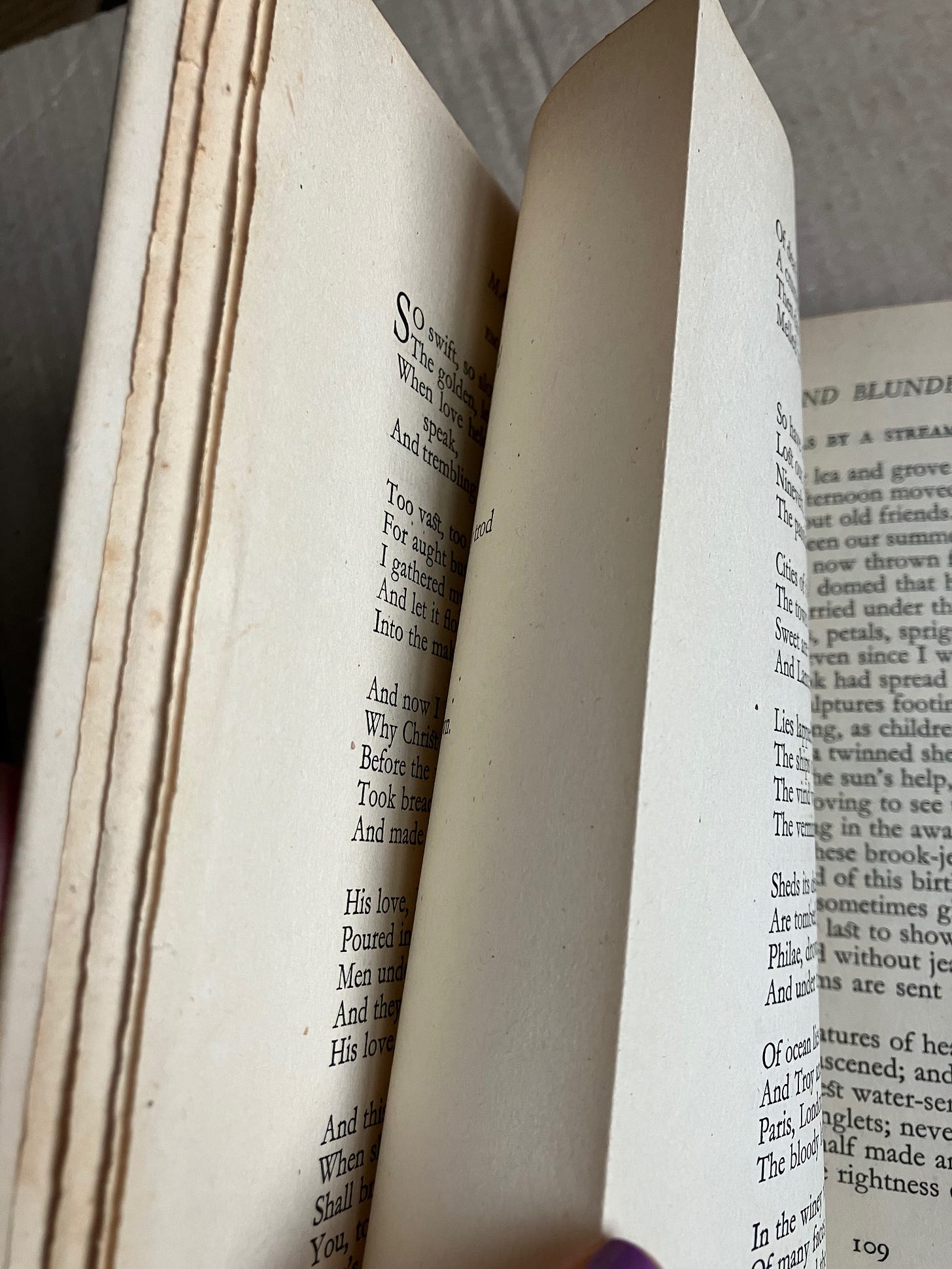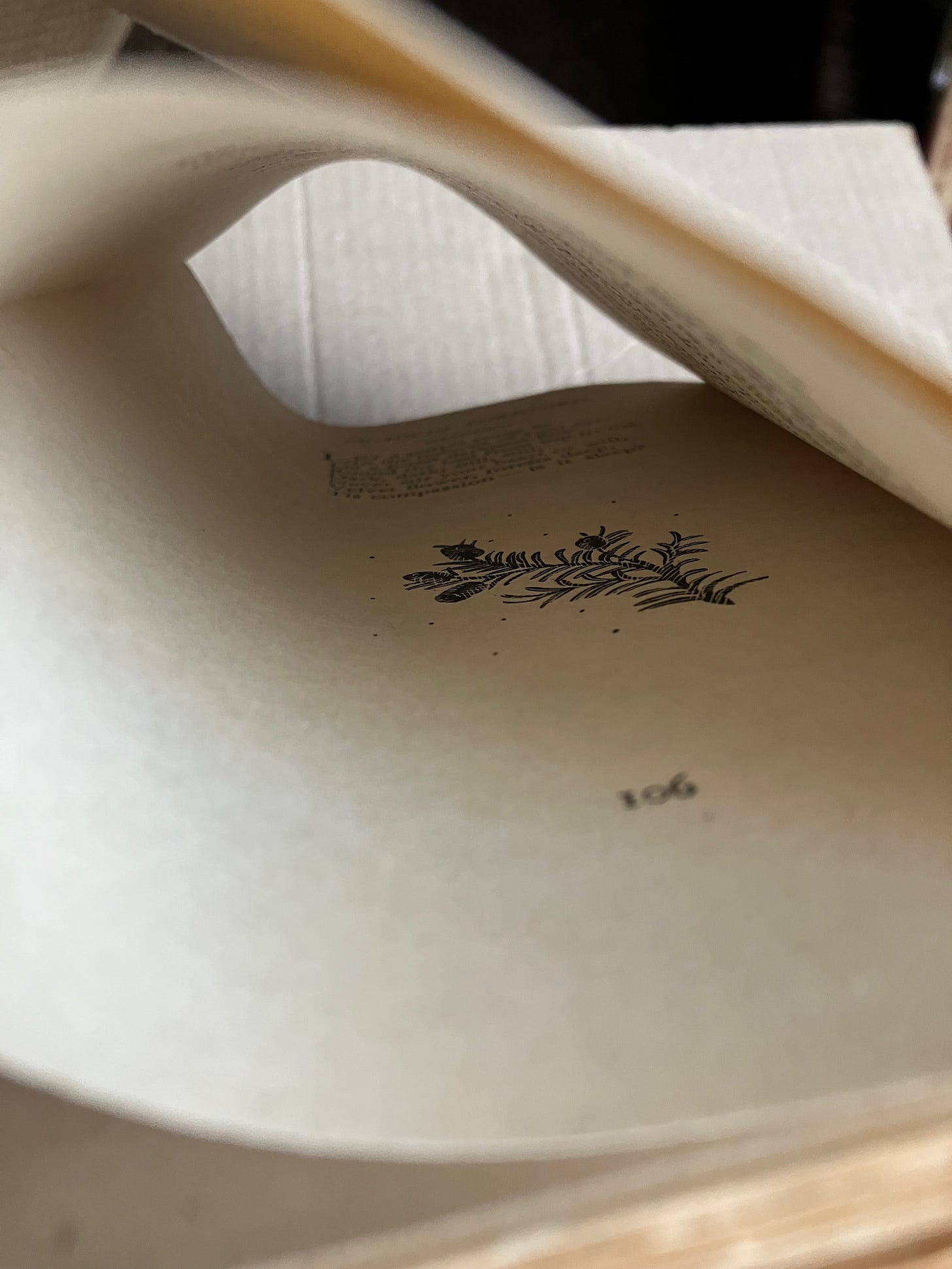Today I bought a Sunday newspaper (a ‘proper’, printed one). Its front cover promising: ‘2024: The year’s television, art, albums, theatre and more, as chosen by our critics’.
Even as I was queuing up to buy the paper – plus a mega-expensive 9-volt square battery, as our smoke alarm chose this morning at five a.m. to chirrup its low-battery warning – I knew it would probably make me feel stressed to discover the multitude of cultural musts I’d likely missed out on. It’s in question whether I’ll even have time to read the paper itself. FOMO on FOMO on FOMO. A Christmas club sandwich with an extra layer of ‘haven’t you watched’ bread.
In winter – and with the shortest day having just passed – the feeling is especially sharp. I usually quite like the December nights, but this time around I’ve been grieving that ‘double day’ feeling of summer when long, light evenings offer extra time (and energy).
The world is speeding along particularly fast (… I think that’s literally true, too? Isn’t the Earth rotating more quickly than it ever has before? Like, it used to spin around much slower centuries ago and now it’s record-breaking fast?)1
But even before social media and super-short attention spans sped things up (or drained things down, depending on how you look at it), it wasn’t possible to keep abreast of everything.
Books are a good example. When I see an old book, a secondhand one I mean, I tend to assume that it has been read. But it’s not a modern ‘problem’ to have a to-be-read pile of books next to the bed and another only-dipped-into stack of magazines (Little White Lies and Poetry Review I’m looking at you) or skim-read virtual subscriptions (hello Substack).
But this is not new. Charles Darwin (off of evolution) had a notebook system where he wrote lists ‘headed “Books Read” and “Books to be Read”, begun at opposite ends of the same notebook, with the text of each written upside down with respect to the other’.2 Although … this is not such a good example to illustrate my point as, Darwin being Darwin, he did then go on to tick off most of those to-be-reads, noting in his autobiography that, ‘When I see the list of books of all kinds which I read and abstracted, including whole series of Journals and Transactions, I am surprised at my industry’.
A better example of what I mean comes from the pages of a poetry collection passed on to me by my grandparents when they were moving house – a copy of The Best Poems of 1942 selected by Thomas Moult, with ‘decorations by N. I. Cannon and others’ and published by Jonathan Cape in 1943. Firstly, that publishing date is interesting. ‘Year in review’ lists these days seem to always be published within the year itself. The Best American Poems of 2024, for example, was published at the very beginning of September this year. It’s a rush. No time for reflection. I much prefer the idea of letting the full 365.25 days complete and then looking back at the highlights.
The main reason I mention this particular volume is that when I was reading it (okay, dipping into it) two years ago (I remember it was two years ago because it was 2022, eighty years after 1942), I found that one pair of pages was still joined together – uncut by the publisher/printer, unopened by the reader – meaning two of this particular copy’s poems had never been read.3
I thought about slicing it open, revealing the pages after all this time – four score years – but it didn’t feel like the right thing to do. Instead, I left them closed, peeking at the poems through their paper cocoon.
I did the same this time last year, and again tonight. A new ritual that reminds me it’s okay not to absorb every atom of culture out there; no one ever has. There can be magic, too, in the unread, the missed, and the ‘not got round to’.4
The most helpful source I’ve found for definitions of ‘uncut’ and ‘unopened’ is the University of Missouri’s rare books glossary (other webpages on the subject seemed to get very cross that people are using the terms ‘incorrectly’).
The poems are ‘Midnight’ by Frances Cornford and ‘Oh cities, cities’ by Verne Bright. I’ve just this moment been googling both poets, and it turns out that Frances Cornford is Charles Darwin’s granddaughter! Perhaps not a coincidence in a way – their family had many prominent/prestigious figures (see wiki/Darwin-Wedgwood_family) – but adding to the feeling of wonder and fate that comes through writing and research – of bringing ideas together, and finding they already were.
Oh, and the 2024 review articles are at: theguardian.com/culture/series/observer-critics--review-of-2024/2024/dec/22/all





